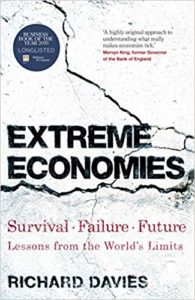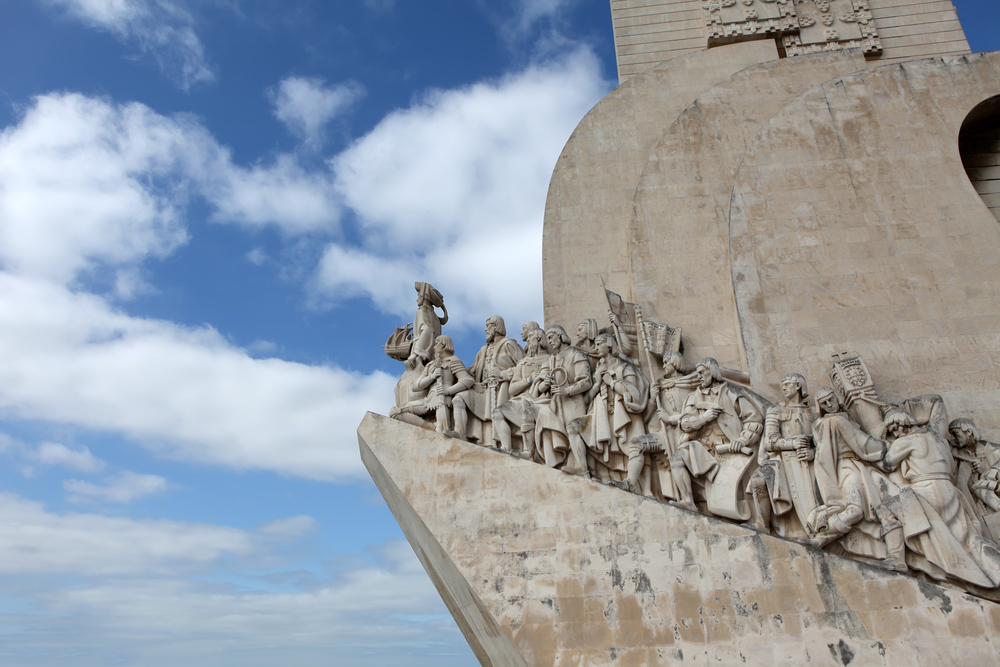Economics isn’t well known for dangerous fieldwork. That’s traditionally been thought of as the realm of anthropologists, archaeologists, etc. But this week’s guest, Richard Davies, goes to”places where humans have been put in a kind of extraordinary test, an extraordinary test of resilience.” In this episode, Davies joins host Russ Roberts to talk about his book, Extreme Economies, and the two engage in a fascinating conversation about economics seemingly at the ends of the earth.

The conversation spans the globe, from a maximum security American prison, to the rain forest of Panama and the heart of Africa. We’ll post our questions below by location:
Angola Prison, the “pinnacle of US incarceration”
1- Why is an economy needed in such a “captive market”? What does Roberts mean when he says, “You could argue in a prison, transaction costs are kind of fun. It’s a feature, not a bug.”
2- How can such an extreme economy still be hit by shocks? How does trade in such commodities as “mojo”, “EMAK”, and “MMAK”, and the “dot economy” demonstrate this?
3- What role does the Angola economy play in forging prisoners’ individual identities? Is this a feature or a bug? (Hint: you might think about skills picked up in prison then found to be useless outside.)
Zaatari and Asraq, Syrian refugee camps
1- What are the biggest differences between the Zaatari and Azraq camps? Why wouldn’t Azraq develop like Zaatari? “Why aren’t there some other things circulating as cash that could allow people to be entrepreneurial?” (Roberts)
2- In describing life in the camp, Davies says, “Institutionally, they live within a constrained economy, which is designed to give them some choice. But I would say kind of not full agency.” What’s the difference between choice and agency in this context? Why does it matter
3- Why does Zaatari experience a problem of inequality not found in Azraq? What does Davies mean when he writes,”…markets are not just a means to an end, but ends in themselves that provide agency, vocation and life satisfaction.”
Darien Gap, deep in the Panamanian jungle
1- Davies describes Darien as a place that should be incredible but is not. Economists tend to laud the value of property rights in an economy, but they don’t seem to ave worked here. Why not? Why are more trees being cut in Darien since property rights have been formalized?
2- How can the work of Elinor Ostrom help explain the situation in Darien? What sort of solutions might her unique approach suggest?
Kinshasa, capital of the Democratic Republic of Congo
1- Davies describes Kinshasa by saying, “no economy more extreme…They have it all, and yet they have nothing.” He also stresses that the people of Kinshasa are very entrepreneurial. So why isn’t Congo’s GDP higher?
2- There are few if any public services in Kinshasa, yet Davies asserts that “everybody is taxed all the time,” sometimes three times a day. How can this be?
3- For what reasons does Davies regard inflation as the greatest evil in the Kinshasa economy? How does inflation contribute to the tremendous inequality there?


READER COMMENTS
SaveyourSelf
Apr 10 2020 at 4:16pm
3. What does Davies mean when he writes,”…markets are not just a means to an end, but ends in themselves that provide agency, vocation and life satisfaction.”
When two people interact and exchange property, it is called a trade. When the two people are restrained so that they cannot harm or threaten each other to influence the exchange, then the only exchanges that are possible are win-win trades. Because if either party thought they were losing by trading, the trade would not occur. When more than two people interact with each other and trading occurs, we have a market. When everyone in that market is constrained by the rules of justice and property rights but otherwise free, then we can predict that everyone involved in the market will benefit. Furthermore, regular interaction in the market will produce continued benefits over time. Those benefits in both the short and long run, are what I assume Davies is referring to when he infers that markets provide job satisfaction and life satisfaction. In addition, agency could only occur in the presence of freedom, so I think it is safe to say Davies is referring to “Free Markets” when he is making the statements about life and vocation satisfaction.
In the micro view, he is saying that trading with another person is not only a way to get property from that other person, but the trade itself provides some benefits that cannot be explained by the gain in goods alone. This is consistent with what Hayek says about relationships—that there is information in the relationships people have between them that is unique. Unique meaning that information is not present in either of the individuals on their own, but is present when they interact. Trading is a relationship, and thus has unique value greater than can be explained by the separate parties or the separate goods under consideration for trade. In other words, he’s correct.